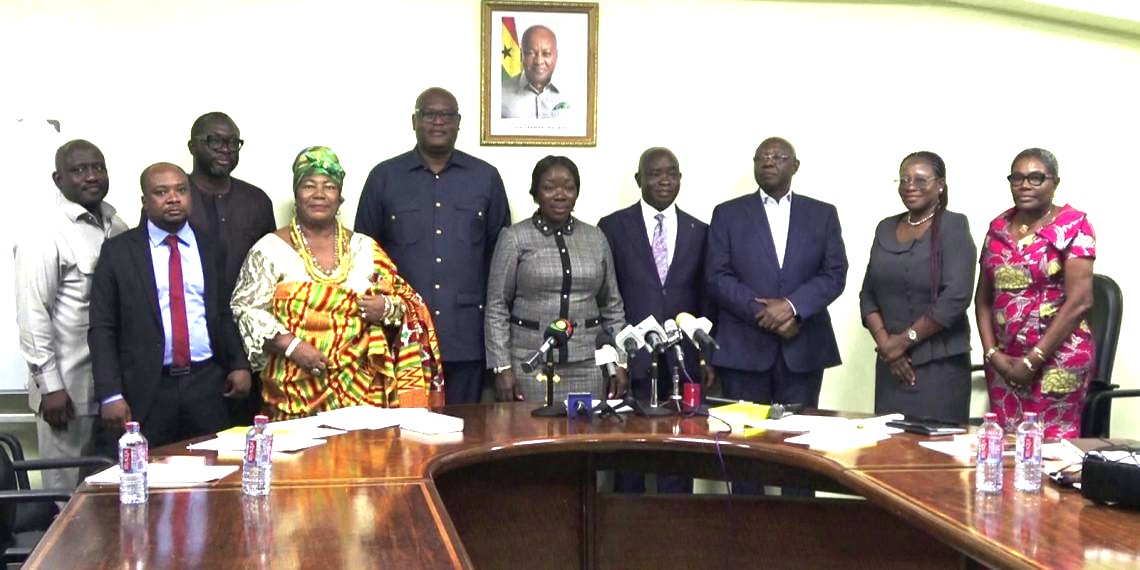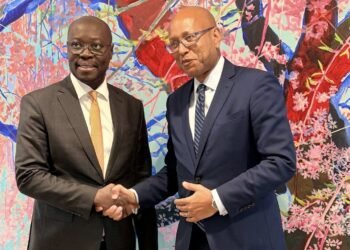The Ghana Investment Promotion Centre (GIPC) has pledged bold reforms aimed at fostering an investor-friendly environment, following the inauguration of a new 10-member board chaired by Mr. Akwasi Opong-Fosu.
The renewed leadership is poised to eliminate bureaucratic bottlenecks and catalyse economic growth by creating a more flexible and responsive regulatory framework for investors.
Mr. Opong-Fosu emphasized the Centre’s commitment to reshaping Ghana’s investment climate to enhance returns for both local and international investors.
“We are going to ensure that investors are not unduly restrained by certain obstacles. Rather, our laws and investment climate will be more flexible to the various priority areas that they would like to invest in.”
Mr. Opong-Fosu
Mr. Opong-Fosu stressed that the new board will play a pivotal role in bridging the existing gaps between government, GIPC management, and the investor community. According to him, the board will function not merely as an advisory entity but as an active facilitator in resolving investor grievances and aligning policies to investor needs. “The Centre must be a one-stop partner that not only facilitates entry but ensures sustained engagement for long-term profitability,” he noted.
Streamlining the Investment Landscape
As part of the renewed vision, the GIPC has already introduced a 24-hour premium service to expedite investor integration into Ghana’s business ecosystem. This initiative is expected to significantly reduce delays and promote operational efficiency for companies looking to establish themselves in the country.
The Centre, which is mandated to facilitate investments across all sectors except mining and petroleum, is actively championing reforms to expand opportunities in key strategic areas such as agro-processing, manufacturing, real estate, pharmaceuticals, and tourism. While the Ghana Chamber of Mines and the Ghana National Petroleum Corporation oversee the extractive sectors, GIPC is looking to channel investments into industries with high potential for job creation and export growth.
In a show of strong governmental backing, the Minister for Trade, Industry, and Agribusiness, Mrs. Elizabeth Ofosu-Adjare, applauded the composition of the new board, particularly its diversity in professional expertise and gender representation.
“The diversity and calibre of the board members give us confidence that the GIPC is in capable hands. Government is committed to strengthening the GIPC Act to make it more aligned with our vision for economic transformation and job creation.”
Mrs. Elizabeth Ofosu-Adjare
Mrs. Ofosu-Adjare reaffirmed the government’s commitment to improving Ghana’s ease of doing business rankings and making the country a prime investment destination in West Africa.
A Board of Diverse Expertise
The new board brings together a unique blend of public and private sector professionals, with expertise ranging from finance and law to international relations and commerce. Among the board members are Samson Ahi, Deputy Minister of Trade; Thomas Ampem Nyarko, Deputy Minister of Finance; and Simon Madjie, Acting CEO of GIPC.
Other members include Dr. Zakaria Mumuni, Dr. Audrey Smock Amoah, and John Awuah, CEO of the Ghana Association of Banks. Also appointed are Dr. Reuben Owusu Gyam, Major Christine Naa Adoley Oko (Retired), and Mercy Afrowa Needjan.
This strategic mix of professionals is expected to reinforce the Centre’s capacity to deliver on its ambitious reform agenda, while also improving investor confidence in Ghana’s policy direction.
With global competition for foreign direct investment intensifying, the GIPC’s renewed focus on reform and investor support services comes at a critical time. The Centre’s strategy aligns with Ghana’s broader national development agenda, which emphasizes industrialization, export-led growth, and private sector development.
READ ALSO: Ghana Records Astronomical Incidents of Gun Violence























